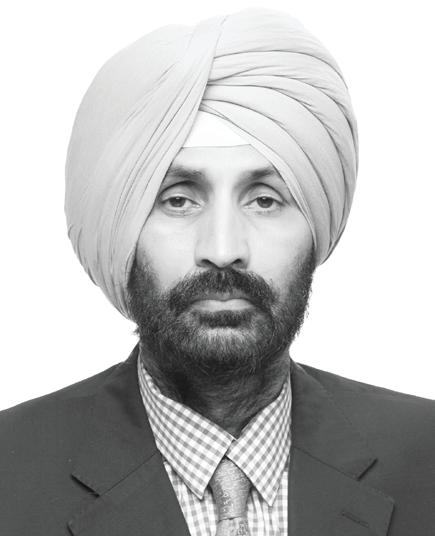Poging GOUD - Vrij
Time for strategic renewal of India-ROK partnership
The Sunday Guardian
|November 16, 2025
India and South Korea must be prepared to support one another in safeguarding their shared democratic values, national sovereignty, a stable Indo-Pacific order, and strategic autonomy amid intensifying great-power competition.

The Indo-Pacific region is undergoing profound geostrategic transformation, reshaping the context within which India and the Republic of Korea (ROK) must re-envision their bilateral partnership.
When the two countries elevated their relations to a Strategic Partnership more than a decade ago, regional conditions appeared comparatively stable. The United States retained uncontested strategic primacy in Northeast Asia; the U.S.-ROK alliance functioned as a reliable deterrent against regional security threats; and although North Korea remained hostile, its strategic behavior was largely contained. Domestically, both India and South Korea experienced robust economic growth, demographic stability, and relatively cohesive social environments. Within this context, bilateral cooperation centered primarily on trade expansion, defence-industrial collaboration, and diplomatic exchanges—an approach that proved largely sufficient at the time.
Today, however, the international and domestic contexts shaping the partnership have shifted markedly. Strategic competition between the United States and China has deepened across technological, military, economic, and ideological spheres, influencing the security and economic choices of both countries in a big way. Washington's increasingly transactional foreign policy and Beijing’s selective support for multilateralism and open and free trade are reshaping regional strategic and economic agendas. The relative strategic simplicity of the past has given way to a more contested and multilayered regional order. These shifts require New Delhi and Seoul to reassess national security priorities, alliance frameworks, and long-term strategic partnerships.
Dit verhaal komt uit de November 16, 2025-editie van The Sunday Guardian.
Abonneer u op Magzter GOLD voor toegang tot duizenden zorgvuldig samengestelde premiumverhalen en meer dan 9000 tijdschriften en kranten.
Bent u al abonnee? Aanmelden
MEER VERHALEN VAN The Sunday Guardian

The Sunday Guardian
INDIA'S SMALL REACTOR, LARGE AMBITION
Understanding India's small modular reactor project is key in comprehending the vast nuclear energy ambition of the world's most populous, fast-growing country.
8 mins
February 22, 2026
The Sunday Guardian
INDIA-BANGLADESH MARITIME COOPERATION STAYED THE COURSE DESPITE POLITICAL SHIFTS
According to official Indian Navy data, in 2023-2024, India allotted 39 naval training slots to Bangladesh under the ITEC framework, and 37 were utilised.
3 mins
February 22, 2026

The Sunday Guardian
'INDIA SHOULD RE-NEGOTIATE TRADE DEAL WITH THE U.S.'
India should either opt out or delay negotiations or seek fresh terms so that the trade deal looks equitable, say experts.
5 mins
February 22, 2026

The Sunday Guardian
SAD RALLY TARGETS MANN GOVERNMENT AMID RELIGIOUS ROW
Akali Dal intensifies campaign as granthi allegations spark controversy.
2 mins
February 22, 2026

The Sunday Guardian
Shalom Namaste: As PM Modi travels to Israel
Israel is India's second largest defence supplier, with a large market for hight technology intensive Israeli arms industry. Israel is also in collaboration with various Indian companies to manufacture in India.
4 mins
February 22, 2026
The Sunday Guardian
India expands intelligence partnerships, turns provider from consumer
India has expanded intelligence-sharing arrangements, surveillance infrastructure, and geospatial cooperation with more than 20 countries since 2014, while simultaneously investing in advanced technologies including artificial intelligence, satellite systems, and digital surveillance platforms to strengthen its intelligence-gathering capacity across defence, intelligence, police, and paramilitary agencies.
3 mins
February 22, 2026

The Sunday Guardian
Karmayogi: How to reclaim meaning in academic life
Karmayogi is not a spiritual ornament but a professional orientation that shifts motivation from reward to responsibility and from anxiety to contribution.
5 mins
February 22, 2026

The Sunday Guardian
US’ renewed Tibet policy matters
For decades, Tibet has lived in the diplomaticshadows—acknowledged but rarely prioritized, invoked but seldom defended with sustained policy attention.
2 mins
February 22, 2026

The Sunday Guardian
EUROPE’S LEADERS SHOULD DERIVE RESERVED COMFORT FROM RUBIO’S SPEECH
Rubio's speech reflects a broader reality: the US is unlikely to abandon Europe, but it is equally unlikely to return to a sentimental conception of the transatlantic bond. The alliance is entering a post-romantic phase.
4 mins
February 22, 2026
The Sunday Guardian
DEMOCRATS DEMAND REFUND AFTER U.S. SUPREME COURT TOSSES OUT TRUMP TARIFFS
Governor J.B. Pritzker sent U.S. President Donald Trump an invoice on Friday demanding nearly $9 billion in tariff refunds for Illinois families after the Supreme Court ruled the President's much-touted levies are illegal.
1 mins
February 22, 2026
Listen
Translate
Change font size

